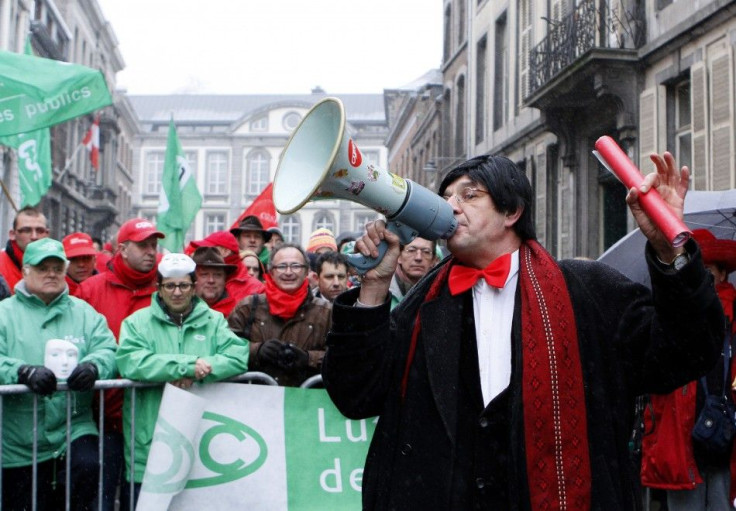Belgium Paralyzed by Strikes Protesting Austerity

Belgium has been brought to a standstill by striking rail and public transport workers protesting the government’s proposed austerity measures, while a summit of European Union leaders commences in Brussels.
Brussels’ international airport reported cancellations and delays, while another air terminal completely shut down. High-speed cross-border train services were also disrupted.
Belgian rail officials told passengers that normal service may not resume until Tuesday afternoon.
BBC reported that production at Audi and Volvo auto plants have also been disrupted, with employees walking off the job.
The country’s three principal unions warned of the nationwide strikes prior to the EU meeting (which is expected to discuss economic growth and job-creation on the continent).
Labor unions insist that EU officials should raise taxes on multinational corporations to revive growth, rather than by cutting public services and reforming pension schemes.
We are angry because they want to attack our pensions, Philippe Dubois, a railway union member told Reuters news agency. We want to make some noise.
This is the first general strike in Belgium in more than six years.
The government is seeking to bring down the deficit by, among other measures, raising the retirement age and freezing spending programs, in a bid to save about $14.8-billion.
Belgium is compelled by the EU to slash its deficit to below 3 percent of GDP from 4.2 percent in 2011.
On Friday, credit agency Fitch reduced Belgium credit rating (with a negative outlook), citing the country’s deteriorating debt situation and the onset of recession. Standard & Poor’s had earlier taken a similar step.
However, there appears to be very little support for the strike. According to an opinion poll taken by the newspaper Het Laatste Nieuws last week, only 21 percent of Belgians are in favor of the strike.
Meanwhile, the budget for 2012 is already creating a fierce battle within the government itself. Some members of Prime Minister Elio DiRupo’s Socialist party vows to hike taxes on the wealthy. However, more conservative members of DiRupo’s six-party coalition warn that higher taxes will exacerbate the recession and thwart any chance of economic growth this year.
© Copyright IBTimes 2024. All rights reserved.











